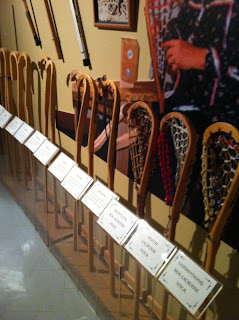Reflection Number 4
Attending Religious Ceremony
Attending Religious Ceremony
Description
I went home to Whitby for the weekend, and on the Sunday morning I asked my Dad
if he wanted to go to church with me. We found a church called Holy Family
Catholic Church near my house. My parents always wanted me to choose my own
religion, if any at all. I am not baptized and I know nothing about the
Christian faith. I figured that because so many people practice it, that it
would be a good place to start my learning. Religion seems to be a touchy
subject with a lot of people, and when I say I’ve never been to church I feel
judged, so this was the perfect opportunity to do so. When arriving, I just
wanted to sit in the back and go unnoticed because I didn’t want to say
anything to offend anyone. Watching everyone it reminded me of a community
setting, everyone was shaking hands and had big smiles on their faces which
made the atmosphere feel more inviting then I thought it would be. I talked to
a man sitting in the same row as me, and he explained that if I wanted to join
the church it should come from me and not outside sources pressuring me. I
always thought religion resembled somewhat a cult, and that they almost force you
into their beliefs, but this wasn’t the case. Also there was water at the back
on the church on the wall, and someone overheard me ask my Dad what that was
for, they told me that it was for baptisms that took place and was called holy
water. When the mass began, I simply followed what everyone else was doing so
that I didn’t stick out like a sore thumb. Communion occurred, but good thing I
knew that I wasn’t supposed to follow along with getting the bread and water,
as it was purely for the Catholics and who were baptized.
Examination
Relating to the reading “Rethinking experience: What do we mean by this word
'experience'?” written by Karen Fox I believe that every experience is what we
make it, and that it is personal. She says “What counts as experience is neither
self-evident nor straightforward;” which explains that experiences are
necessary and depends on one’s interpretation. Indulging in a different culture
than your own is an experience in itself, and how I see it will be completely
different than someone else. This is why experiences are so important, you
learn for yourself and on your own. This was just a type of experience; there
is no set definition especially for religious experiences.
Articulation of Learning
I have learned that finding out about peoples cultures and religions can be
beneficial to you, it broadens your knowledge and makes you less judgmental.
Catholic religion is very popular and even if you don’t believe in what they
are saying, you must respect others decisions.
I learned this when the man sitting next to me at church said that they don’t
want to push their beliefs on anyone; therefore they aren’t judging you and you
shouldn’t in return. Everyone should respect whatever you believe in, and the
people of this church did.
This learning matters because it would make more people get along, I believe
that if we attended more religious ceremonies or different churches we would
appreciate others more and see that everyone is similar.
In light of this learning, I want to attend more services with all of my
friends from different backgrounds, and see what their families and they
practice. It has showed me that religion is not so much a cult, but something
for people to believe in.
Reference
Fox , Karen . Rethinking Experience . Colorado :
Journal of Experimental Education , 2008. Print.







